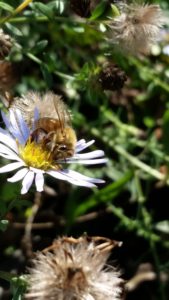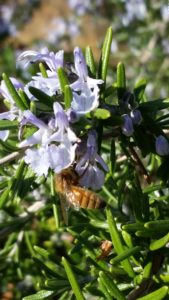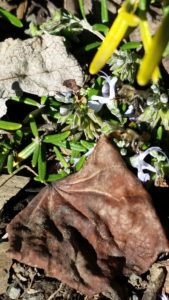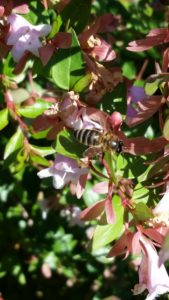Thank you to everyone that attended our January meeting! Though the meeting space was tight, I think that if our bees could have seen us they would have have enjoyed seeing us beekeepers crammed together in harmonious learning.
Like swarming bees, we are looking for a new place for PUB to call “home.” Our previous two meetings were held at the Lucky Labrador on SE Hawthorne, but alas it was too crowded. Our February meeting will be held at the Lucky Labrador’s NW PDX location at 1945 NW Quimby which has space for 100. In the meantime, we will continue to search.
A new year brings new guidelines for Oregon beekeepers. Cheryl Wright, our club treasurer and student in the OSU Master Beekeeper program explained the new best practices, which can be downloaded for free here. These guidelines were developed to aid cities throughout Oregon to have a better understanding of the benefits of residential beekeeping and that honey bees can be kept in a nuisance free manner. The comprehensive booklet also serves as a common sense guide for how to keep our bees in ways that won’t upset or bother our neighbors. Additionally, the Oregon State Beekeepers Association has designated persons to aid in conflict resolution should the need arise.
We discussed our finances for 2018, which showed that the club had lower revenues but also lower expenses for the year. Your membership dollars are important for the ongoing operations of the club: business registration, taxes, rent, apiary expenses, website/hosting fees and our PO Box for example. We intend to give quarterly updates moving forward as requested by our members who participated in the member survey which can be accessed here.
Glen Andresen from Bridgetown Bees shared trivia and his What’s in Bloom report for January. Glen has been a staple for PUB meetings for years and if you are like me, you appreciate the plant knowledge that he contributes!
Our new board of directors was voted in and here are the results: President – Mandy Shaw, Vice President – Simone Miller, Education Director – Rebekah Golden, Communications Director – Forrest Stotts, Treasurer/Secretary – Cheryl Wright, Librarian – Lauren Smith, and Member at Large – Emma Egstad.
Volunteers who generously donate their time, talents, and resources keep PUB alive as an organization. If you are interested in volunteering or becoming more active in the club, please contact any of us!






